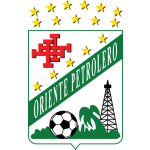Bolivia (League) - AI Football Predictions Online
| AI | ||
|---|---|---|
 LFPB LFPB | ||
| 2025-04-11 15:00 |
| |
| 2025-04-11 19:00 |
| |
| 2025-04-12 15:00 |
| |
| 2025-04-12 17:30 |
| |
| 2025-04-13 15:00 |
| |
| 2025-04-13 17:15 |
| |
| 2025-04-13 19:30 |
| |
| 2025-04-13 20:00 |
| |
Exploring the Depths of Bolivian Football: A Cultural and Competitive Journey
Bolivia, a nation renowned for its rich cultural tapestry and breathtaking landscapes, is also home to a passionate football scene that weaves together history, identity, and community. Football in Bolivia transcends mere athletic competition; it is a profound expression of national pride and local tradition. From the high-altitude pitches of La Paz to the vibrant streets of Santa Cruz, the game is deeply ingrained in the Bolivian way of life, reflecting the spirit of its people.
The Historical Roots of Football in Bolivia
The introduction of football to Bolivia can be traced back to the late 19th century, primarily through British immigrants and local enthusiasts who embraced the sport. The formation of the Bolivian Football Federation in 1925 marked the beginning of organized football in the country. Early competitions laid the groundwork for what would evolve into the top-tier league, the Primera División. This league has since become a battleground for clubs that represent the diverse regions of Bolivia, each bringing its unique flair and fervor to the pitch.
One cannot discuss the history of Bolivian football without mentioning the legendary teams such as Club Bolívar and The Strongest, both based in La Paz. These clubs have not only dominated domestic competitions but also fostered a fierce rivalry that electrifies the fans. Matches between the two, known as the "Clásico Paceño," draw thousands of spectators, showcasing the intensity of Bolivian football culture. The passion exhibited by the fans, often portrayed through colorful displays and raucous chants, encapsulates the pride Bolivians take in their local teams.
The Unique Challenges of Playing at Altitude
One of the defining characteristics of Bolivian football is the unique challenge presented by its high-altitude venues. La Paz, situated over 3,500 meters above sea level, is home to some of the most challenging conditions for visiting teams. The thin air affects players' stamina and performance, providing home teams like Bolívar and The Strongest a significant advantage. This geographical quirk has been both a blessing and a curse for Bolivian football, as it often hampers the national team's performance on the international stage while fortifying the local leagues.
Internationally, Bolivia has often struggled to assert its dominance, with the national team facing formidable opponents in South American competitions. However, the altitude has led to memorable moments, such as the infamous 6-1 victory against Argentina in 2009, which remains one of the most significant upsets in World Cup qualifying history. The match not only exemplified Bolivia's potential but also highlighted the psychological and physical toll that altitude can impose on opponents.
The Role of Youth Development in Bolivian Football
As Bolivian football continues to evolve, the focus on youth development has become increasingly vital. Grassroots programs and academies are sprouting across the country, aiming to nurture young talent and instill a love for the game from an early age. Clubs like Bolívar and The Strongest have recognized the importance of investing in their youth systems, producing homegrown players who can shine on both domestic and international stages.
Players such as Marcelo Moreno Martins and Jaume Cuéllar, who began their careers in local clubs, have gone on to represent Bolivia on the international stage and play for clubs in major leagues around the world. Their success stories serve as inspiration for young players throughout the nation, encouraging them to pursue their dreams despite the challenges that lie ahead. The commitment to youth development not only strengthens the clubs but also revitalizes the national team's prospects in future competitions.
The Future of Bolivian Football
While Bolivian football has a rich history and a vibrant present, its future holds both challenges and opportunities. The impact of globalization and the growing influence of international leagues present a double-edged sword for local football. On one hand, young Bolivian talents are increasingly drawn to opportunities abroad, seeking exposure and better prospects. On the other hand, this migration can drain local leagues of their most promising players, leading to a competitive imbalance.
The Bolivian Football Federation is actively working to improve the infrastructure of the league and enhance the overall quality of the game. Collaborations with international organizations and experienced coaches aim to uplift the standard of play and ensure that Bolivian football remains competitive on the continental stage. By fostering a culture of excellence and innovation, the hope is to cultivate a new generation of players who can bring glory to the nation and forge a new legacy in South American football.
The Heartbeat of Bolivian Society
At its core, football in Bolivia is much more than a game; it is a celebration of identity, community, and resilience. The sport serves as a unifying force, bringing together people from diverse backgrounds and fostering connections that transcend social divides. Local matches, often accompanied by traditional music and dance, transform stadiums into vibrant festivals, highlighting the cultural significance of football in Bolivian society.
As fans don their jerseys and gather in stadiums, the sense of camaraderie and belonging is palpable. The roar of the crowd, the collective gasp at a near miss, and the ecstatic celebrations of a goal create an atmosphere that is uniquely Bolivian. This emotional connection to the sport ensures that football will continue to thrive, reflecting the hopes and dreams of a nation that takes immense pride in its rich footballing heritage.
 English
English  Español
Español  Italiano
Italiano  Deutsch
Deutsch  Polski
Polski  Português
Português  Français
Français  Nederlands
Nederlands  Svenska
Svenska  Türkçe
Türkçe  Hrvatski
Hrvatski 
















